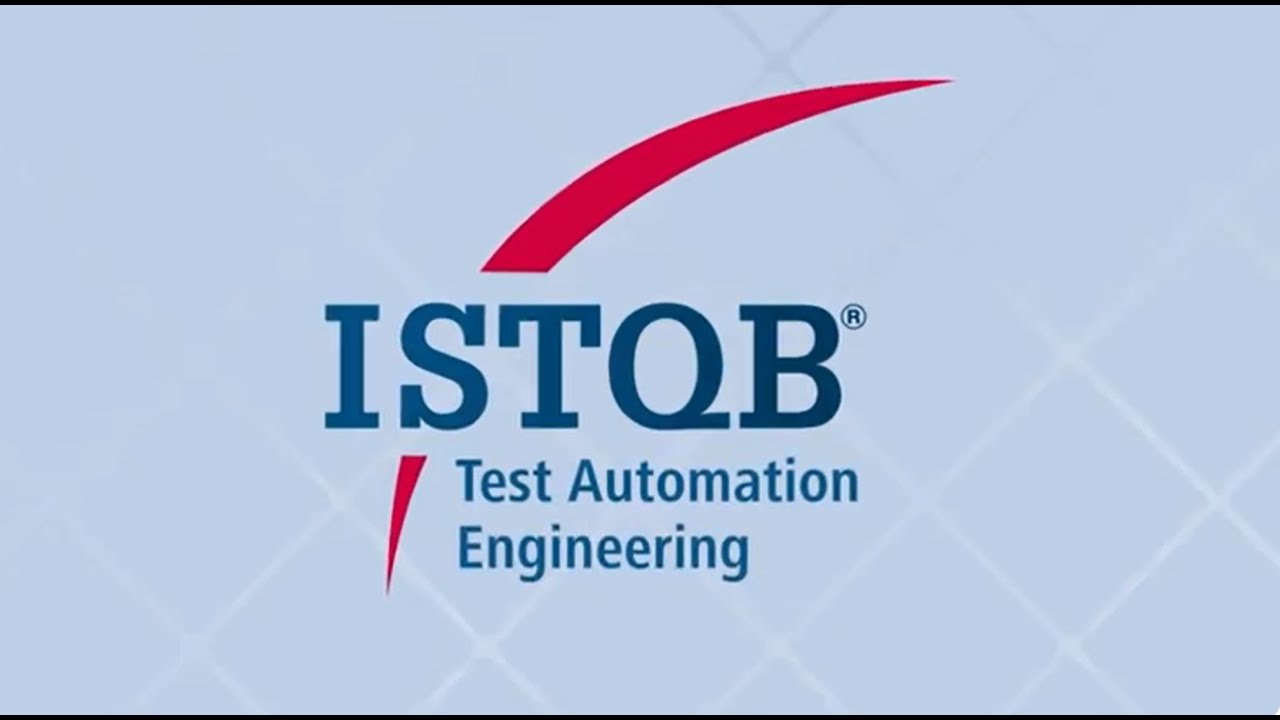QA Automation Engineer Certification Your Path to Career Success

QA Automation Engineer Certification: Your Path to Career Success. Discover how QA Automation Engineer Certification can boost your career. Unlock new opportunities & skills for lasting success in tech today!

Introduction to QA Automation Engineer Certification
The QA Automation Engineer Certification: Your Path to Career Success is a vital qualification for professionals aiming to specialize in quality assurance through automation tools & techniques. This path not only enhances your resume but also reinforces your ability to contribute effectively to the software development process. With more companies realizing the need for skilled QA engineers, obtaining this certification becomes a significant asset for those looking to advance their careers in technology. This certification emphasizes both the theoretical groundwork & the practical applications of automation testing, ensuring that candidates are well-equipped to handle various testing scenarios.
Why Choose QA Automation as a Career?
Opting for a career in QA automation presents numerous benefits. Firstly, automation testing is becoming a standard practice in software development, leading to an increasing demand for skilled automation engineers. Professionals in this field often enjoy lucrative salaries & opportunities for remote work. In addition, pursuing a career in QA automation allows you to work with cutting-edge technologies & tools, keeping your skillset relevant & fresh. On top of that, many organizations prioritize quality in their offerings, thus giving QA automation engineers a crucial role in delivering seamless user experiences. By acquiring the QA Automation Engineer Certification: Your Path to Career Success, you position yourself as a desirable candidate for these roles.
Advantages of Choosing QA Automation Details
High Demand Companies are increasingly seeking skilled QA automation engineers, leading to a plethora of job opportunities.
Attractive Salary QA automation roles typically offer competitive compensation packages.
Remote Work Opportunities Many QA developers can work remotely, providing flexibility & work-life balance.
Continuous Learning The tech industry evolves constantly, ensuring ongoing skill enhancement.
Key Skills Required for QA Automation Engineers
To excel as a QA Automation Engineer, certain essential skills are critical. Primarily, a solid foundation in programming languages such as Java, Python, or C# enables you to write effective test scripts. Familiarity with automation tools like Selenium, TestNG, or JUnit is also necessary, as these are widely used in the industry. And another thing, understanding testing methodologies, including Agile & DevOps practices, can greatly enhance your effectiveness as an automation engineer. And don't forget, strong analytical skills help in troubleshooting & optimizing testing processes. This combination of skills ensures that you are well-prepared to handle the tasks you will encounter in a QA automation role, making the QA Automation Engineer Certification: Your Path to Career Success all the more valuable for your professional growth.
Proficient in programming languages (Java, Python, C#).
Knowledge of automation tools (Selenium, TestNG, JUnit).
Understanding of testing methodologies (Agile, DevOps).
Strong analytical & troubleshooting skills.
The Certification Process Explained
The process of acquiring the QA Automation Engineer Certification: Your Path to Career Success typically involves several steps. Initially, candidates should choose a reputable certification body that offers comprehensive courses focusing on QA automation. Many of these courses offer both online & in-person training options. After completing the necessary coursework, individuals will need to register & prepare for an examination that assesses their knowledge & skills. The exam usually consists of multiple-choice questions as well as practical assignments to test real-world application. Once the exam is passed, a certification is awarded, signifying proficiency in QA automation. The investment of time & resources in this certification can dramatically enhance a professional's marketability in the job market.
Steps to Certification Details
Select a Certification Program Research & choose a program that suits your goals.
Complete Coursework Engage in training modules covering essential automation skills.
Prepare for Examination Utilize practice tests & resources to enhance knowledge.
Take Exam Complete the certification exam to demonstrate your skills.
Benefits of Certification
Obtaining the QA Automation Engineer Certification: Your Path to Career Success provides numerous advantages. For one, it validates your expertise in automation testing, which can be an essential factor in job selection processes. And don't forget, certified professionals often experience higher earning potential, as many employers offer better salaries to applicants with proven credentials. And another thing, certification enhances your confidence, allowing you to take on complex projects & responsibilities. Not to mention, being part of a network of certified professionals opens doors to mentorship & collaboration, further accelerating your career growth. In summary, the benefits of certification contribute to a more promising & fruitful career in quality assurance automation.
Networking Opportunities
Through certification programs, you can meet fellow professionals who are also pursuing their qualifications in QA automation. Networking with peers can provide industry insights, collaborative opportunities, & may even lead to job referrals down the line.
Real-World Applications of QA Automation
The skills gained through the QA Automation Engineer Certification: Your Path to Career Success allow professionals to tackle real-world challenges effectively. QA automation engineers are responsible for streamlining testing processes & reducing time-to-market for software products. For instance, an automation engineer might implement a testing framework that allows for consistent regression testing every time new code is introduced. This minimizes the risk of introducing new bugs into the software, ensuring a smoother user experience. And another thing, automation techniques enable engineers to run extensive test cases that would be time-consuming if performed manually. These applications showcase not just the knowledge gained from certification but also the immediate value professionals can provide to their employers.
Implement automated testing frameworks.
Conduct extensive regression testing.
Reduce time-to-market with efficient processes.
Enhance product quality through systematic testing.
Industry Trends Influencing QA Automation
The technology sector is continually evolving, & several trends are shaping the future of QA automation. First, the adoption of artificial intelligence (AI) in testing processes is rapidly increasing. This shift allows for predictive analysis, enabling testers to anticipate potential defects before they arise. And another thing, the rise of continuous integration/continuous deployment (CI/CD) practices necessitates that QA engineers work more closely with development teams, further embedding quality in the development lifecycle. As more companies move towards agile methodologies, the need for automation testing becomes more pronounced. Understanding these trends underlines the importance of obtaining the QA Automation Engineer Certification: Your Path to Career Success as it aligns your skills with market demands.
Future of QA Automation Engineering
The increasing demand for QA automation will likely continue, making this an excellent time to enter the field. The skill set obtained through certification offers much flexibility in various domains, from web applications to mobile technologies. Certification ensures you remain updated with foundational & advanced skills required in today’s tech landscape.
"QA Automation Engineer Certification: Your Path to Career Success is not just a ticket, it's an investment in a rewarding future." - Faustino Waelchi
Frequently Asked Questions
What is the average salary of a QA Automation Engineer?
The average salary for a QA Automation Engineer varies by location & experience but typically ranges from $70,000 to $120,000 annually. With certification & proven experience, salaries can exceed these figures significantly.
Do I need prior experience to pursue a QA Automation Engineer Certification?
While prior experience in software testing can be beneficial, it is not a strict requirement. Many training programs cater to those new to the field, covering both foundational & advanced topics necessary for certification.
How long does it take to become certified?
The duration to achieve certification depends on the program you choose & your personal learning pace. Generally, programs can take a few weeks to several months to complete, leading up to the certification exam.
What resources are recommended for preparing for certification?
Various resources are available, including online courses, textbooks, & practice tests. Many certification bodies also offer study guides & community forums to help candidates prepare effectively.
QA Automation Engineer Certification
In summary, pursuing the QA Automation Engineer Certification: Your Path to Career Success can significantly impact your professional growth in technology. This certification provides a comprehensive skill set, making you a key asset in the software development lifecycle. With the increasing demand for QA professionals, obtaining this credential will enhance your credibility & help you stand out to potential employers. Embrace this opportunity to secure a successful career in QA automation!






